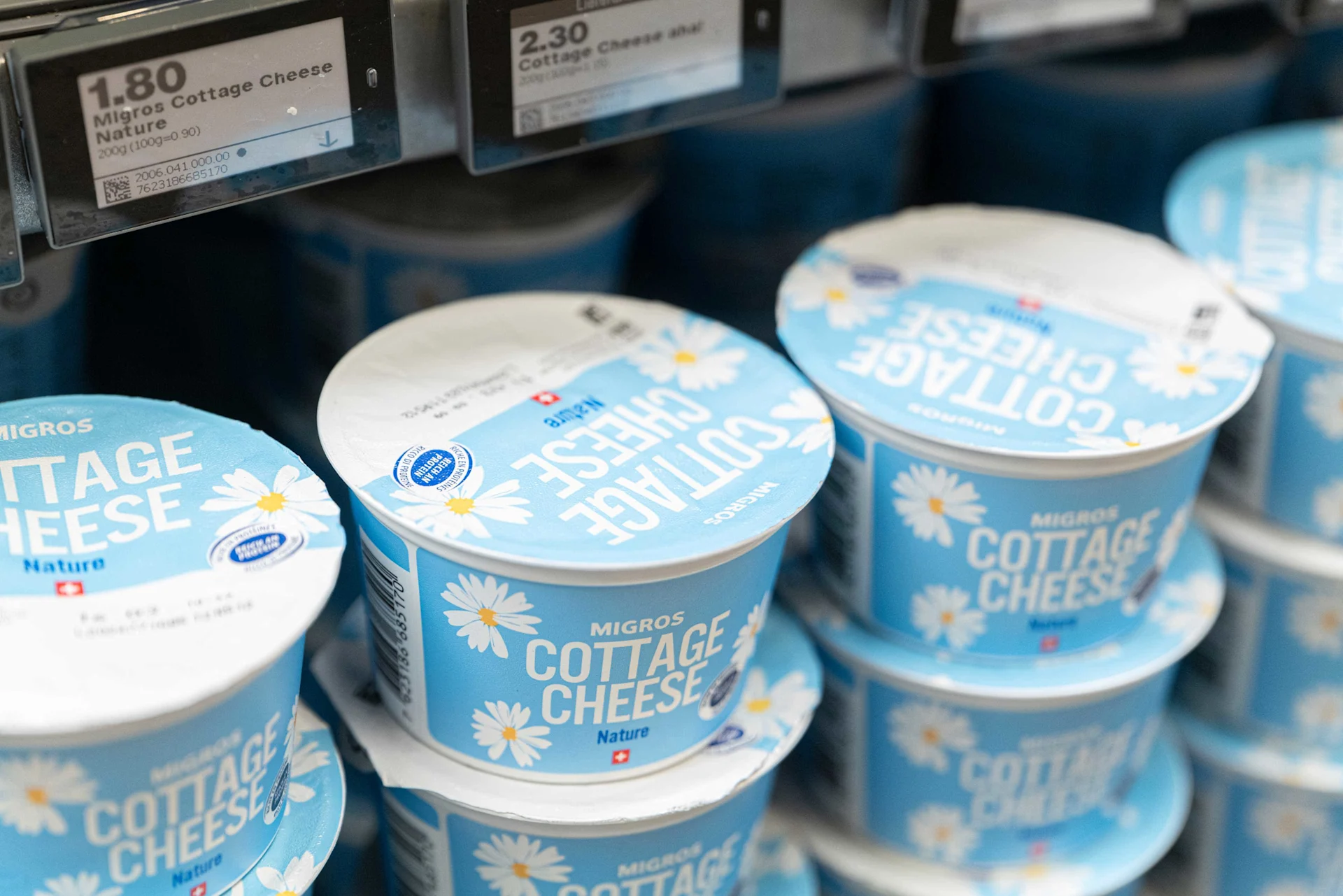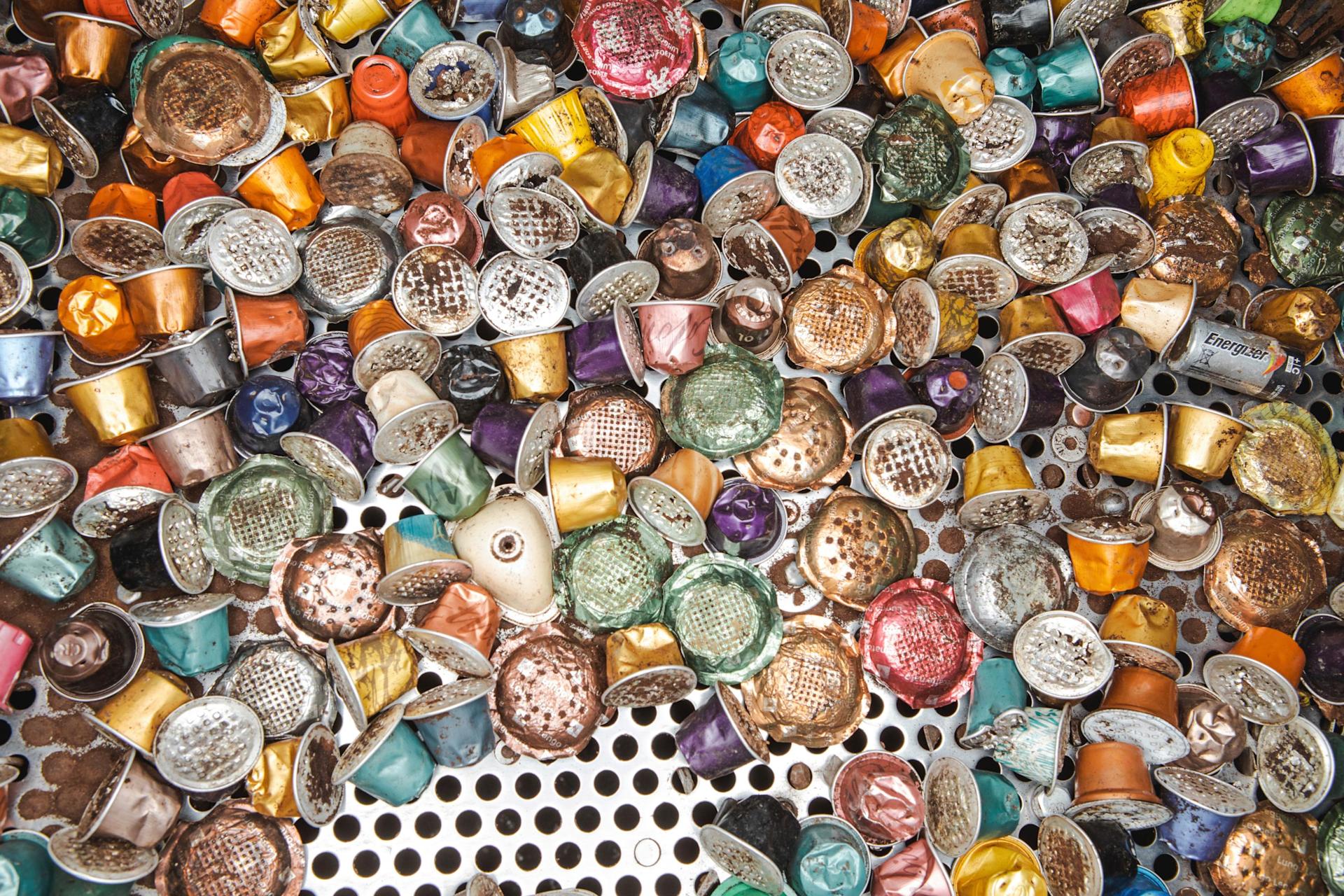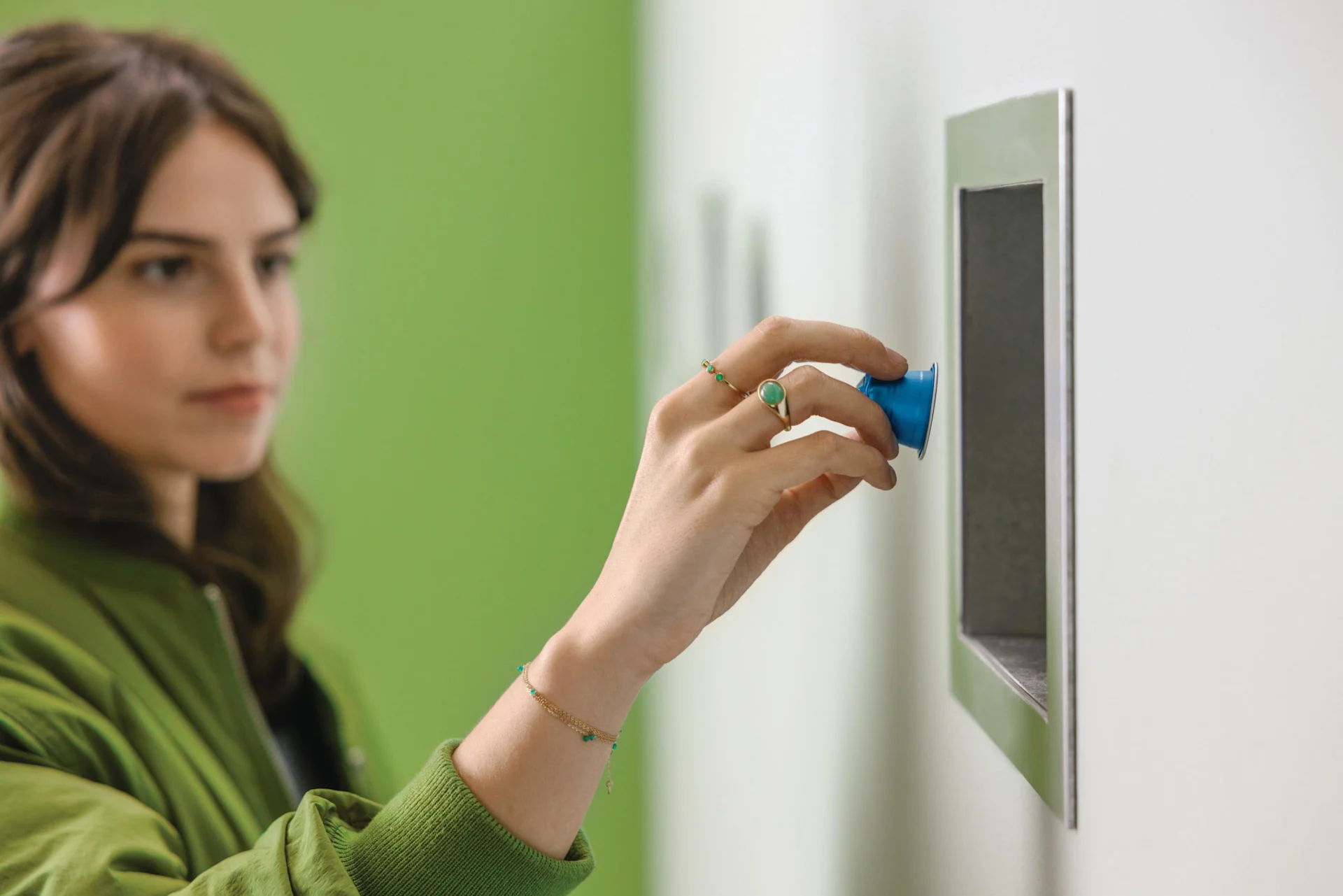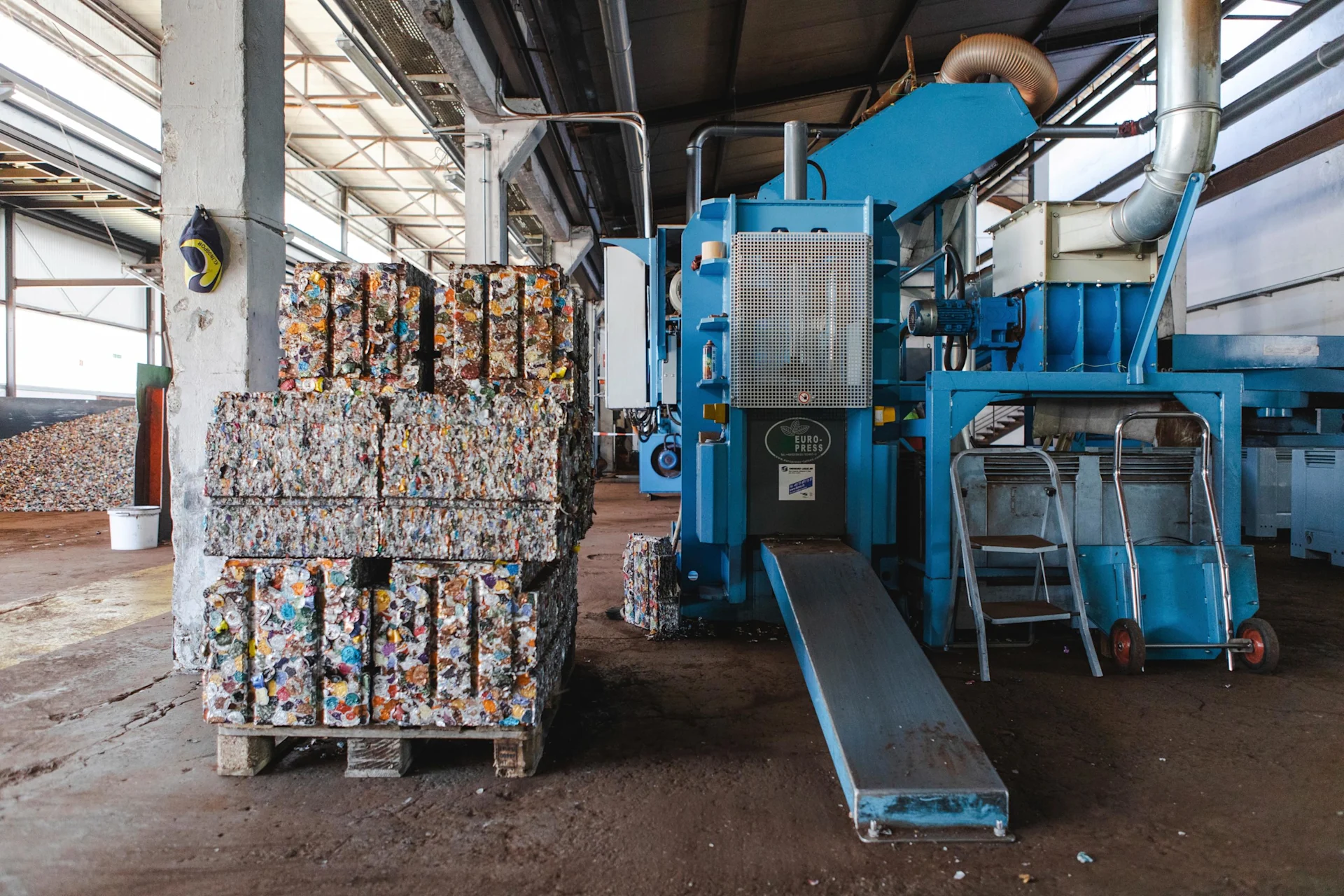
Sustainability
Responsible packaging
Migros is doing all it can to make packaging more sustainable and eco-friendly.
navigation

Circular economy
Recycle coffee capsules? Logical and sustainable. We have a solution for every taste.
Your alarm sounds and work hails – but most people will allow themselves one necessary treat beforehand: a cup of coffee to get their day started. Many people consider this to be an everyday habit, but it can have wildly different effects on the environment depending on the type and quantity of coffee used.
The average Swiss resident drinks around 1,069 cups of coffee per year. This equates to about three cups per day. This figure is nothing to sneeze at! How we drink our coffee therefore makes a big difference. Aluminium coffee capsules are popular as the aluminium optimally protects the aroma of the coffee and is 100% recyclable.
Coffee lovers can hand over their aluminium capsules at any Migros store across Switzerland. We take care of the rest: recycling is carried out in partnership with Nespresso. After all, the Nespresso-compatible capsules of our own brand Café Royal have been using recyclable aluminium instead of plastic since spring 2020.

In the capsule recycling process, the aluminium is separated from the coffee and reused. The recovered aluminium is partly used for new capsules and partly for the industrial manufacture of window structures, bicycles or cars. Biogas or natural fertiliser is produced using the coffee grounds. «It is important for us to take responsibility for our environmental impact while also offering a customer-friendly recycling solution,» says Hubert Lehnard of Delica, Café Royal manufacturer.

A coffee capsule made of at least 65% renewable raw materials: the Delizio coffee capsule is made of plastic and is neither composted nor recycled, but rather incinerated. The capsules cannot be chemically distinguished from the previous capsules, but they are far more sustainable. How so?
When producing pulp from wood, as is required to produce paper for example, you end up with the waste product tall oil.
The liquid tall oil is used as a raw material for the production of polymer granules.
The granules serve as the base material for the production of Delizio coffee capsules.
As a result, Delica’s new capsules consist of at least 65% renewable raw materials.
Organic coffee capsules that fully decompose after 12 weeks? After use, coffee capsules consist of over 80% (depending on the system) organic material – the coffee grounds. To allow them to find their way back into the natural cycle instead of ending up in the trash, a complex separation of capsule and coffee is required.
If, on the other hand, the capsule material is also made of a degradable material, everything can be composted as a whole after use. The home-compostable lungo and espresso capsules from Migros Bio are precisely such capsules. The only thing more sustainable than that is the capsule system without capsules – CoffeeB from Migros.
Discover exciting stories about all aspects of Migros, our commitment and the people behind it. We also provide practical advice for everyday life.